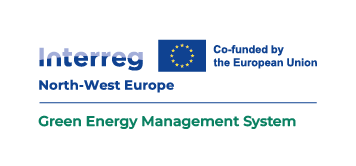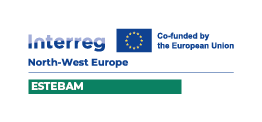Our Interreg North-West Europe GEMS project has been approved.
The ESTEBAM project has been approved as part of the Interreg GEMS programme.
The aim of this project is to develop and install a Green Energy Management System to manage and regulate the electricity and hydrogen flows of an ESTEBAM aquaculture ecosystem, which will implement a territorial ecosystem loop from the production of green hydrogen from photovoltaic panels to its use by powering two mussel-farming barges based at Viviers-sur-Mer retrofitted with a hydrogen internal combustion engine.
The aim of this pilot project is to create a collective self-consumption system by installing a GEMS to manage and regulate electricity and hydrogen flows in a port ecosystem based on 2 pillars:
Mussel farmers currently use individual diesel tanks to power their amphibious barges. The aim of the project is to set up a common hydrogen supply zone which, combined with the retrofitting of mussel barges, will help to decarbonise the activities of mussel farmers. The hydrogen will be produced by installing photovoltaic panels in the area, and will be stored on site.
The Green Energy Management System will prioritise the conversion of renewable electricity into hydrogen until the maximum capacity required to power the two barges is reached. Any surplus renewable electricity produced that is not converted into hydrogen can be used internally (water cooling system for preserving oysters), sold to local businesses or to EDF Obligation d’Achat.
As the project is part of the overall objective of InterReg GEMS, it will be necessary to work in synergy with the other European partners, in particular by making data available and facilitating interviews with players from other ecosystems.
We will also need to ensure that the model can be replicated at regional and European level. Replication of the model on other sites in North Brittany will be facilitated by the fact that the Committee represents the interests of 8 production basins. We will need to be able to share our knowledge and make the most of our experience with European partners who have significant mussel farming activity (Belgium, Ireland, Netherlands).
To be continued.







